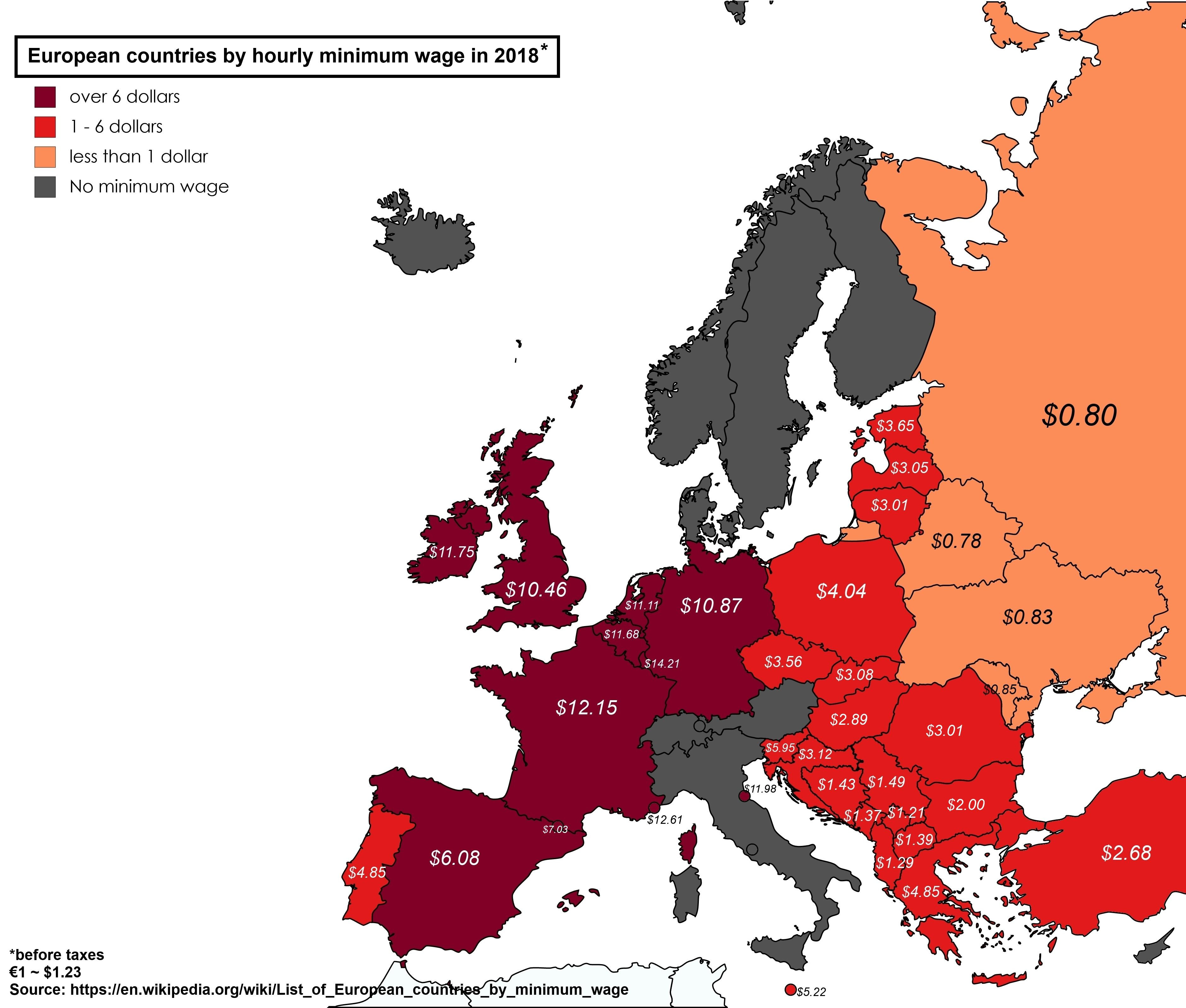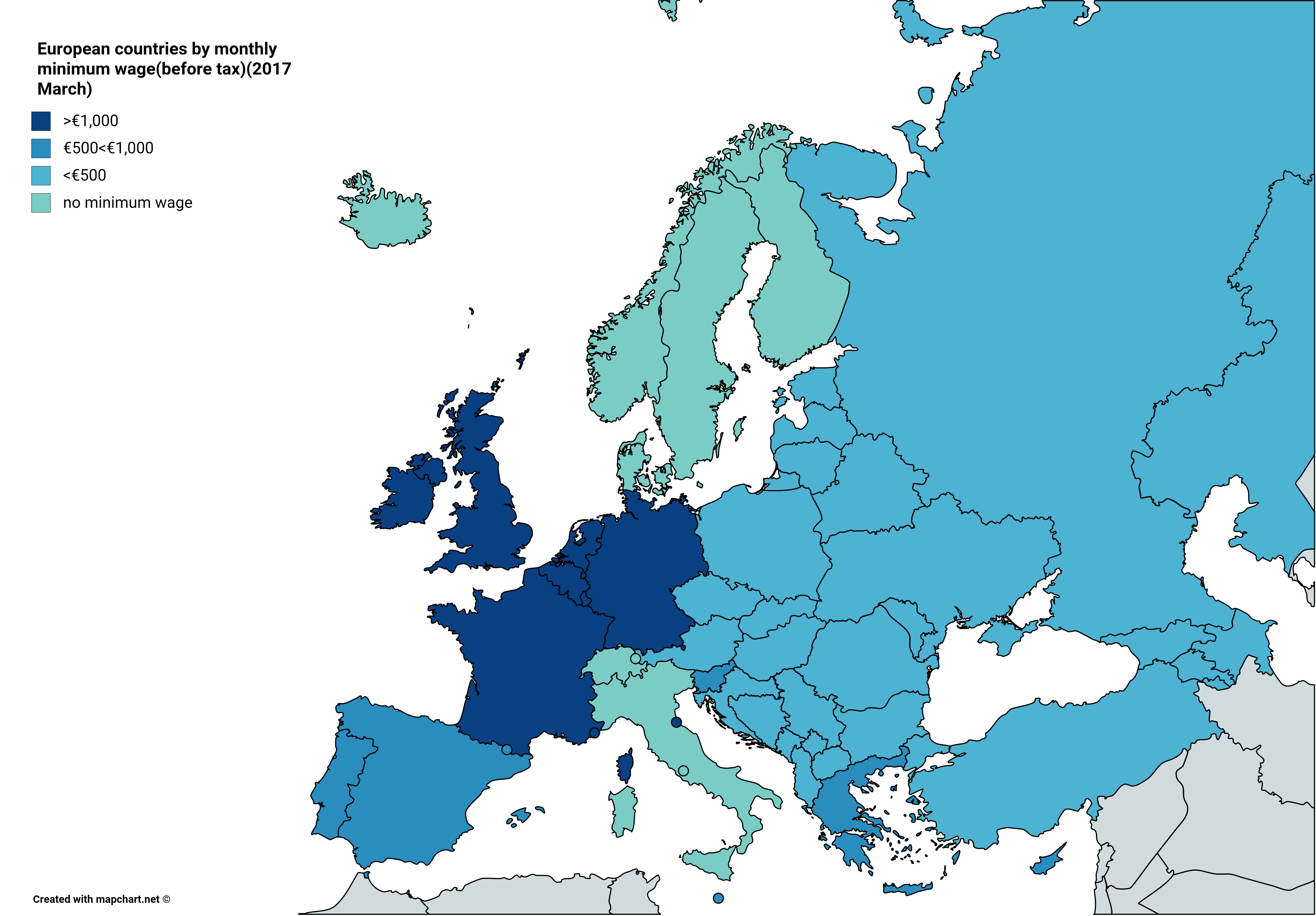Member states are dragging their feet implementing EU laws intended to ensure workers get a decent salary, as a key deadline looms, the European Trade Union Confederation said.
With weeks to go until a key legislative deadline, Seven EU countries have not even started legislating for new EU minimum wage protections, new research from the European Trade Union Confederation (ETUC) has found.
New EU laws, agreed in June 2022 in the wake of a significant cost of living crisis, must be embedded in national legislation to take effect – but France, Italy, Portugal, Cyprus, Estonia, Lithuania and Malta haven’t even started doing so, ETUC said.
“Working people have already waited two years for this directive to be implemented and should not be made to wait any longer,” ETUC Confederal Secretary Tea Jarc said in a statement.
“Most national governments should stop dragging their heels and finally turn these promises into a reality,” she added.
Why Minimum Wage Matters
ETUC says the Directive could benefit around 20 million workers – but believes that the minimum wage, defined as a proportion of average earnings, is sufficiently high in just two EU countries.
The new EU rules were hailed by the European Commissioner Nicolas Schmit, who said they would “help make sure that minimum wage earners can afford a dignified life” at a time of significant worries about the cost of living.
They faced opposition from Denmark and Sweden, which have widespread collective bargaining but no minimum wage, and by businesses who feared extra costs.
Unequal Minimum Wages Across the EU
Gross minimum wages in the EU vary widely, from €477 per month in Bulgaria to €2571 in Luxembourg.
The final rules don’t require countries to have minimum wages, but those who do must ensure they have a sound way of setting and updating them, such as by reference to purchasing power.
Enforcement and Consequences
The European Commission is responsible for enforcing EU law and can take governments who fail to take the necessary measures to court – although that normally only happens once the deadline, in this case 15 November, has passed.
In some cases, such as Germany, the government has argued it doesn’t need to take action as existing laws already comply with Brussels norms.
A spokesperson for the European Commission did not immediately respond to a request for comment.
What This Means for Workers
The failure of these seven EU countries to implement the new minimum wage protections could have serious consequences for workers. They could be left behind in the cost of living crisis, unable to afford basic necessities like food, housing, and healthcare.
This could also lead to increased poverty and inequality within the EU. It's crucial for these countries to take action to ensure that all workers have access to a decent standard of living.
The Clock Is Ticking
With the November deadline approaching, the pressure is on these seven countries to finally implement the new minimum wage laws. Failure to do so could result in legal action from the European Commission. The eyes of Europe are on these countries, and workers are watching closely to see if their rights will be protected.


















